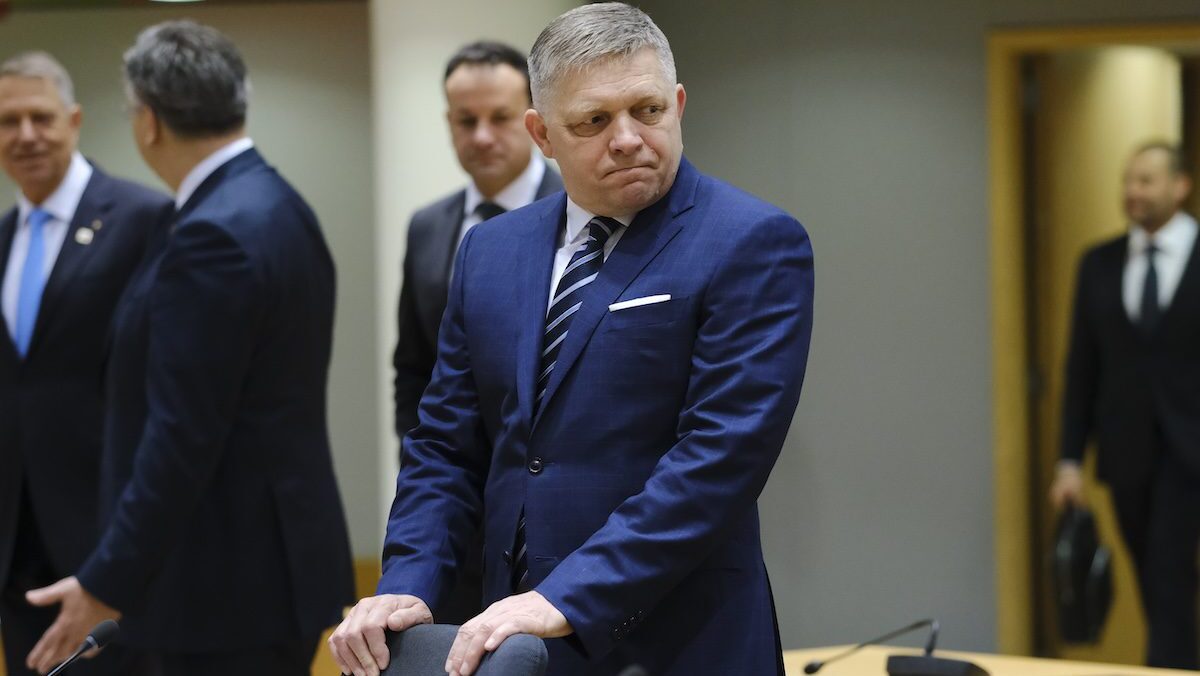
Slovak PM Robert Fico.
Photo: European Council © European Union
As of January 1st, Ukraine has stopped the shipment of Russian natural gas through its territory toward the EU after refusing to renew the now-expired transit agreement with the Russian energy giant Gazprom.
On the one hand, Brussels is cheering the decision to strip Moscow of further revenues while downplaying the concerns of member states who have not yet switched to much more expensive alternatives, such as American LNG (liquified natural gas).
On the other hand, Slovakia, the country most affected by the shutdown, has warned that the entire EU will have to bear the costs due to the likely surges in the stock market. This will affect energy prices across the bloc and lead to a loss 50-60 times greater than what Russia will lose in revenues annually.
According to an impact study commissioned by the Slovak government from the country’s main energy supplier SPP, the halt of Russian gas transit through Ukraine will increase gas prices on the standard-setting German and Dutch stock markets by €10-12 per MWh.
This will translate to a €40-50 billion additional cost to member states throughout the EU, and a further €60-70 billion every year due to spiking electricity costs as a secondary consequence. Meanwhile, Russia is expected to lose no more than €2 billion if the transit agreement with Ukraine is not renewed, not to mention that Kyiv itself will also lose hundreds of millions in transit fees.
Slovak PM Robert Fico laid out these numbers in a letter sent to the presidents of the European Commission and the European Council a few days ago. He pleaded for EU leaders to “urgently” address Kyiv’s unilateral “unprecedented” decision, which jeopardizes member states’ energy security and will have “extremely negative” consequences for Europe.
However, in a report published in mid-December, the European Commission stated that the EU was “prepared” to lose the 14 billion cubic meters of gas arriving through Ukraine because the infrastructure needed to import “alternative supplies”—such as LNG from the U.S., Norway, or Azerbaijan—has been made available in recent years.
Fico, however, accused the Commission of acting recklessly by greenlighting Kyiv’s decision and sacrificing member states for an ideological war on Russia. “Accepting the unilateral decision of the Ukrainian president is totally irrational and wrong,” Fico argued in his letter. He also warned of “a major financial impact in a complicated economic period.”
Slovakia is the EU country which is most affected by the missing Russian gas, but others were also forced to bite the bullet even if they would never dare to call out the blackmail publicly. Austria and the Czech Republic had been in the same situation—with 98% of the former’s gas imports coming from the same pipelines—but now have opted to buy expensive American LNG instead through the German terminals. Hungary, meanwhile, has secured an alternative route for acquiring Russian gas through the Turk Stream pipeline so the decision did not come as a significant blow.
Fico, however, is prepared to go on the offensive to change Kyiv’s mind and floated “reciprocal measures” that could involve halting Slovak electricity exports to Ukraine. “If it is unavoidable, we will halt the electricity supplies that Ukraine needs during grid outages,” Fico said. “Or we will agree on a different course of action.”
According to the prime minister, President Zelensky ruled out transporting non-Russian gas too, and instead told him that Ukraine would keep the pipelines open if Slovakia stopped paying for the gas until the end of the war. “What fool would give us gas for free?” Fico commented on the request. According to him, Zelensky then offered €500 million from frozen Russian assets in exchange for his vote for Ukraine’s NATO accession which he turned down.
"What fool would give us free gas?"
— Zlatti71 (@Zlatti_71) December 21, 2024
Slovak Prime Minister Fico spoke about Zelensky's unusual and stupid request. According to him, the Ukrainian leader offered him transit of Russian gas in exchange for Slovakia never paying Russia for gas until the end of the conflict.… pic.twitter.com/0YCtSO8sZm
